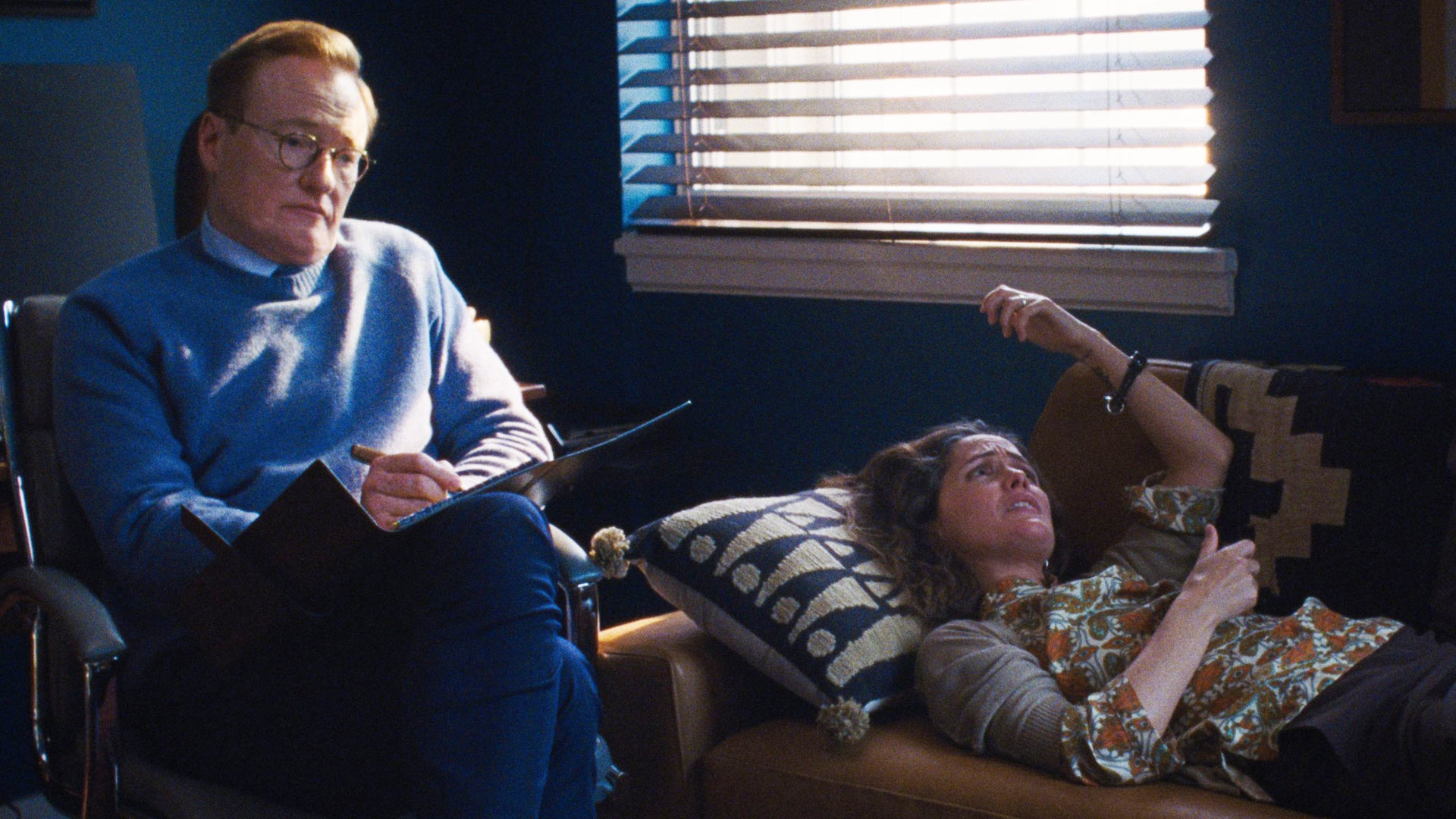The brilliance of Rose Byrne in If I Had Legs I’d Kick You
Rose Byrne detonates the screen in this blistering, uneasy, darkly comic character study that grips like a vise and refuses to let go.

Does Rose Byrne deliver one of the best performances of the year in her new film—or one of the best performances in years, full stop? I’ve seen If I Had Legs I’d Kick You twice now, and I’m inclined towards the latter, which is whopping great praise but hardly controversial given the chorus of slack-jawed responses that’ve greeted writer-director Mary Bronstein’s agonisingly excellent film since it premiered at this year’s Sundance. This sticky-icky character study attaches itself like a symbiote to Byrne’s protagonist Linda, a psychologist and mother of a daughter with special needs.
Bronstein and Byrne (by god, I hope they work together again) execute a kind of cinematic extreme weather event: a performance, and a film, not so much watched as felt, and felt hard—like you’ve been injected with some hideous serum and spun around on the spot. Written as a drama but emotionally toned more like a horror movie, it’s one hell of a production: brilliantly acted, visually interesting, and audaciously directed, imbued with bold decisions that give it a fearless and unruly quality.
Chief among these is Bronstein’s choice not to show Linda’s daughter (Delaney Quinn) despite her having a substantial amount of dialogue and appearing—so to speak—in many scenes. Nor do we even learn her name. The film begins with a close-up of Byrne’s eyes, which are heavy and lidded throughout, pressed down by the weight of the world, blurred by lack of sleep, lack of peace, lack of oxygen, too many concerns, too many drugs, too much daylight to unrun. When people talk to Linda, they feel inclined to raise their voices, attempting to pierce the thick stinking haze enveloping her.
That opening scene contains three voices: Linda’s, her daughter’s, and a doctor’s. They’re engaged in a tetchy conversation about potentially removing the tube attached to her daughter, through which she’s fed every night; she suffers from an eating disorder. But the frame remains on Linda; we only hear the others. This continues in the next scene and the scene after that. The camera’s habit of sticking to the protagonist like a wet leaf carries a clear message: this film is about her problems, even when the problems being discussed belong to other people. It adds extra currency to Byrne’s already monumental presence.
It’s clear things aren’t going tickety-boo for Linda and her daughter, even before the roof in her apartment literally falls through and the pair are relocated to a cut-rate motel. Some viewers will find the first scene depicting Linda at work as a therapist bitterly amusing, others simply sad, underscored by the terribly adult realisation that people assisting others are sometimes the ones most in need of help. Linda herself sees a therapist (Conan O’Brien) who doesn’t hide his disdain for her. O’Brien—yes, that Conan O’Brien—gauges the mood of the film well, delivering lines like “you’re not alone, I’m here” with the kind of needling hollowness that says: you’re very much alone, and we both know it.

One of the things that makes If I Had Legs I’d Kick You so strange and bleak is the striking lack of empathy directed towards Linda, from virtually all characters, and even from Bronstein and Byrne. The director doesn’t tell us she deserves our compassion, and nor does the performer; we’re not even sure Linda deserves our pity. We quickly learn to be wary of her, not only for her tendency to self-medicate (or self-annihilate) but for the sense that she might burn through whatever safety net remains. It feels like everybody in this film hasn’t experienced peace and quiet for so long they’ve forgotten what it’s like.
Byrne’s performance, and the film itself, is paradoxically terrific: masterfully controlled and yet loaded with a volcanic instability. It leaks and oozes from the screen; it creates its own wild energy. Some will find it too emotionally exhausting to tolerate, but perhaps everybody can agree that it’s acted at one hell of a voltage.





















